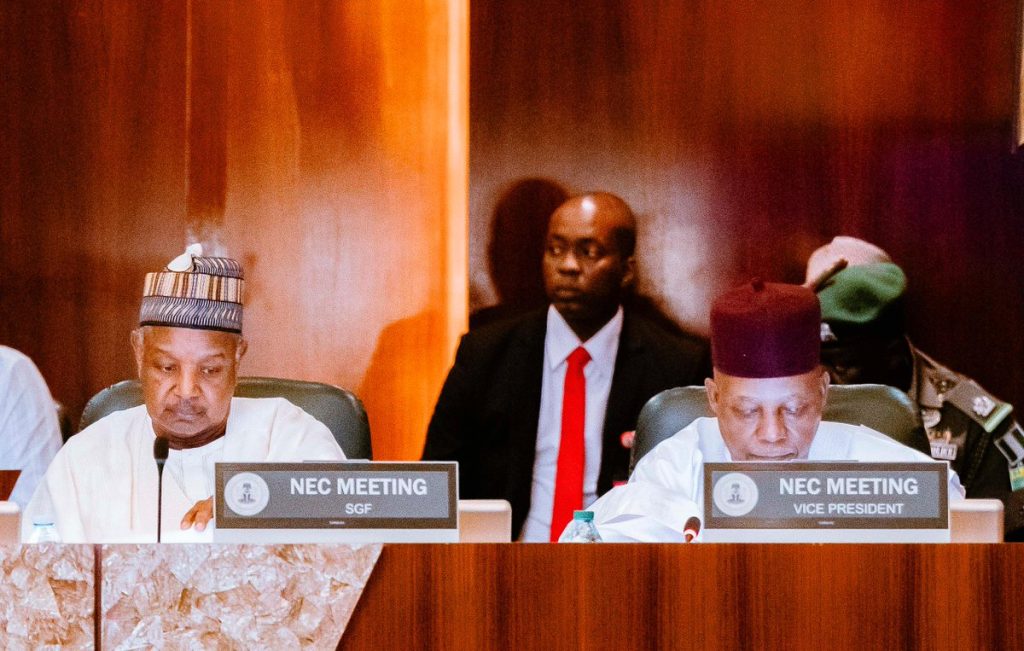The National Economic Council (NEC) has endorsed the framework for the “Renewed Hope Development Plan (2026-2030)”, a new medium-term strategy designed to consolidate economic reforms and propel Nigeria toward a $1 trillion economy by 2030.
The plan will serve as a successor to the country’s expiring National Development Plan (2021-2025).
READ ALSO: Nigerians fume as FG hikes passport charges again
Speaking at the 151st meeting of the council, Vice President Kashim Shettima, who serves as the chairman, described the new plan as a “bridge between lessons learnt and ambitions pursued.”
He said it will build on existing policies, align with the long-term goals of Nigeria’s Agenda 2050, and be a practical roadmap for economic growth.
Shettima emphasised that the plan’s development will be participatory, involving all levels of government, civil society, private sector organisations, labour unions, and traditional institutions.
He announced that key governance structures, including a National Steering Committee, Central Working Group, and Technical Working Groups, will be established to guide the process.
The NEC also received briefings on several critical issues.
On polio eradication, the council noted a 46 per cent decline in circulating poliovirus cases compared with the previous year. ,
It called on the Accountant General of the Federation to expedite the release of funds for the next national polio immunisation campaign scheduled for October and urged states to prioritise resource allocation for immunisation programmes.
Regarding economic account balances, the Accountant General reported that the Excess Crude Account currently stands at $535,823.39, while the Stabilisation Account holds ₦78.45 billion and the Natural Resources Account ₦106.73 billion.
On support for farmers, Shettima announced that the National Agency for Science and Engineering Infrastructure (NASENI) has increased local production of solar-powered irrigation pumps.
READ ALSO: Shettima: FG to unlock Nigeria’s geo-heritage potential
The initiative aims to help farmers cut energy costs, expand dry-season farming, and strengthen food security.
The meeting ended with a call for NEC members to ensure that government policies are translated into tangible results for Nigerian citizens.



